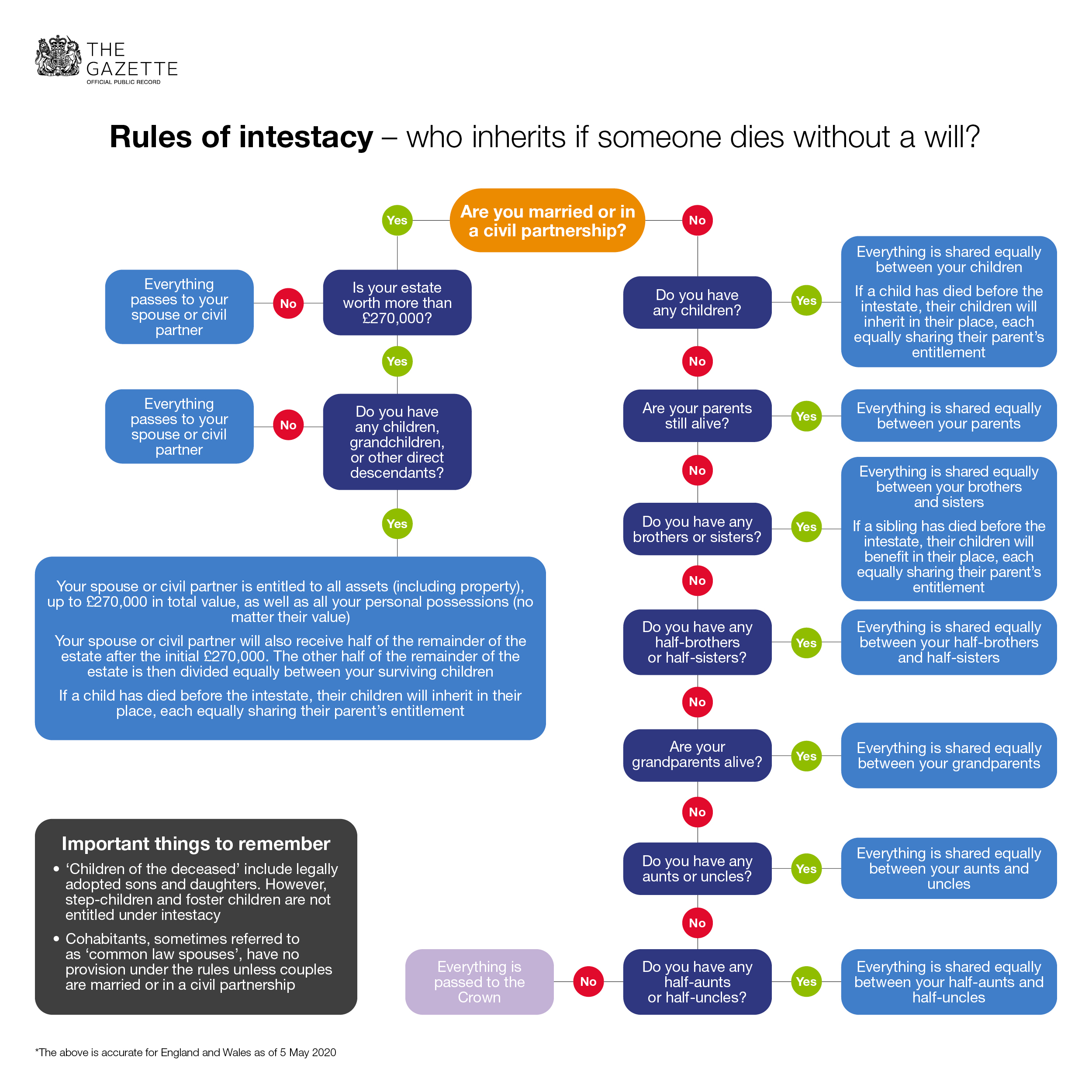Dying without a will - how the rules of intestacy affect who manages the estate
A recent survey by the charity will-writing scheme, Will Aid, identified that more than half of UK adults have yet to make a will. Probate manager, Rachael Kell explains how those who die without a valid will may end up leaving their loved ones with little control over their assets, and potentially open to costly legal challenges and delays in sorting out the estate.

An executor is the person (or people) you nominate in your will to manage your estate after your death. Therefore, it follows that if you do not have a will, you are unable to choose who is going to administer your estate. In that event, without a will, your estate will pass in accordance with the laws of intestacy, and who is able to administer your estate is also governed by the intestacy rules. Nonetheless, there remains a strict order of who benefits from the estate depending on family circumstances, and the right to manage the estate falls in accordance with this.
What issues can arise from dying intestate?
- The person who is legally first entitled to act as administrator may not be willing or able to do so, due to age or ill health, such as an elderly spouse or parent. In this case, steps will need to be taken to pass on the right to manage the estate.
- You have to be 18 years or older to act as an administrator (the person who administers an estate without a will). In the event of minor children, who, but for their age, would be entitled to act, then the person with parental responsibility for the minor(s) would be entitled to take out the grant on their behalf.
- If you have a partner but are not married, or are in a civil partnership, your partner has no right to manage the estate and no entitlement under the laws of intestacy, even though they may be exactly the person you feel would be best placed to know your wishes.
- If there is no close family it may be difficult to trace the person entitled to act, let alone gaining their agreement to take action, causing delays.
- If there is more than one person at the same level of entitlement to manage the estate, they may disagree over who should act if they do not wish to act together, causing disputes.
- There can be delays in making funeral arrangements, securing your property and other assets, and settling debts, if it is not clear who should be dealing with such matters.
Other inheritance issues to consider:
- If you have no family who can inherit under the rules, the estate passes ‘bona vacantia’ to the Crown, and the Treasury Solicitor will have control of the management of your estate.
- Friends, unmarried partners, or partners not in a civil partnership, carers, relatives by marriage and charities whom you may wish to benefit from your estate will not.
- Family members who you may not have wanted to have control of, or to benefit from, your estate may end up doing so.
- Partners or dependants may need to submit a claim for reasonable financial provision from your estate pursuant to the Inheritance (Provision for Family and Dependents) Act 1975.
Reasons for having a will:
- You can choose who manages your estate: Making a will allows you to choose who manages your estate and, if they agree to act, you can speak to them in advance about any priorities or concerns, thus ensuring that your estate is managed in the way you would want.
- You can opt for a legal professional to act as an executor if you prefer: Making a will means you can appoint a legal professional to act as your executor if you feel an independent professional would be more appropriate for your particular circumstances.
Changes to the laws of intestacy:
The intestacy rules governing who benefits from the deceased’s estate changed in 2014. These changes were intended to make the distribution of assets more transparent and more in line with the public expectation of how an estate should be divided. As one might expect, spouses, civil partners and children are all first in line to inherit (there is a prescriptive approach to who gets what), followed by other close relatives in descending order of blood relationship.
Overall, the only reason why someone would actively choose not to make a will is if they genuinely had no interest at all in who inherits their estate. In practice, very few people actually fall into this category, but there still exist too many myths (and a degree of superstition) around making a will.
We all need to stop and think – who do I want to inherit my assets when I die? Once the question has been answered, the solution is very straightforward.

About the author
Rachael Kell is a probate manager at Wright Hassall, and is a member of the Society of Trust and Estate Practitioners (STEP).
Image: Getty Images
See also:
To show that sufficient effort has been made to locate creditors before distributing the estate to beneficiaries, you can place a deceased estates notice in The Gazette, and in a newspaper local to the deceased.
Choosing executors: what to bear in mind
Should under-20s write a will?
The perils of homemade wills and assuming intestacy
What can I do to prevent a future claim against my estate?
You may also like:
